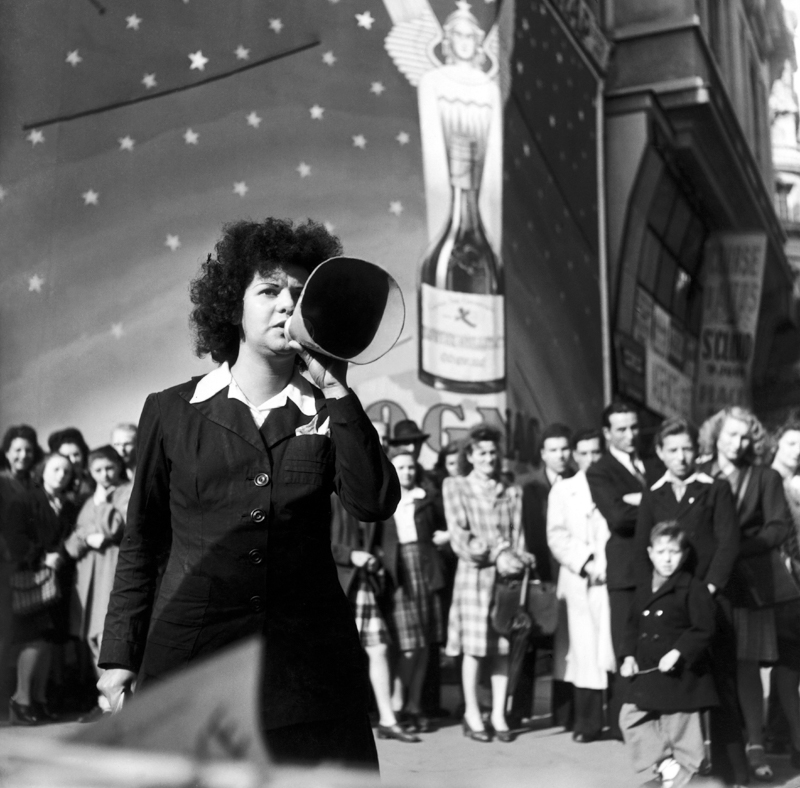At the age of 18 Lily Lian had a life-changing experience on the streets of her beloved Pigalle.
“In the middle of a crowd of onlookers,” she wrote in her 1981 memoir, “this girl was singing all the songs I loved. It was her voice which attracted me, a deep voice which came from the heart and from her guts!” She pushed through to the front of the crowd and found herself a few steps away from a petite young woman dressed in black. Passersby froze in their tracks, and “life stopped for the duration of a love song”.
The tiny figure with the big voice was Edith Piaf, and she was accompanied by a friend whose job was to circulate the begging beret among the crowd. When Piaf finished singing, Lian followed the pair into a bar and fell into conversation with them. By the end of the afternoon, she had agreed to be their Sunday lookout — since Piaf was singing on the street illegally. In return, the future star patiently gave her tips on being a chanteuse des rues (street singer). Piaf’s advice helped her enormously when, after the war, Lian became one of just two female singers (among many male vocalists) to have a license to perform with her band at busy Métro stations and street markets.
Lily Lian was born Liliane Lebon in Paris in 1917. She was the daughter of a young pilot and his dressmaker wife. About a year after her father returned from the war, her parents moved out of Paris, going from place to place trying to find work. Her younger sister Yolande died of meningitis at the age of three, and not long afterward her parents split up. Lian was sent to live with her aunt for six months.
In 1929, her mother remarried. Lian’s stepfather was an alcoholic who dragged his stepdaughter around his favorite bars and made her sing for the other drinkers. By this time, Lian already understood the power of her singing voice. As a child, she claimed, she had a system for separating shopkeepers from their bonbons: she would simply go into their shops and announce that she was going to sing a song and they must give her sweets.
Lian became one of just two female singers to have a license to perform with her band at busy Métro stations and street markets.
When her natural father turned up at her school and asked her to live with him and his new partner, Lian jumped at the chance of escaping her increasingly abusive stepfather. However, it soon became clear that she had just swapped one nightmare for another: her new “parents” owned a grocery store and woke her every morning at 4am so she could go to the Hachette depot to collect the newspapers, then accompany her father to Les Halles to buy the fruit and vegetables. “At eight o’clock, he would leave me at the school gate. I could barely stand up!”

Over the next few years, Lian was batted back and forth between the two households. After being thrown out by her father, she was taken in by the owner of a dairy shop who provided work and accommodation and advised her on how to carry out an abortion when she found that she was pregnant. During her otherwise happy 18 months there, she sang nonstop, taking part in singing contests all over Paris, and singing for the customers. She caught the attention of the owner of a Pigalle nightclub, the Paradise, and was hired as one of the scantily clad dancers.
Lian reveled in the “village of the night” feel of the neighborhood. “Pigalle had a soul. It was a town within Paris, a town apart. My friends were the artistes, the waiters and the shop girls. I lived happily there.” During the occupation, Lian became adept at helping German officers to run up huge bar bills at the Paradise, on which she received a commission. However, events took a sinister turn when all the dancers were rounded up and sent for a medical. Realizing that they were to be sent to Germany to work as prostitutes, Lian escaped and went underground in December 1942. Unable to sing or go out, she attempted suicide twice.
Her fortunes improved after the liberation when she began operating as a chanteuse des rues with one of the 30-odd groups that plied their trade in Paris, meeting each week at the Prefecture to be allocated their pitch. The singers would sell “formats” — sheets of song lyrics printed by music publishers — and, using a loudspeaker, sing songs that the publishers wanted to promote. “We, the street singers, played a big part in the success of a song,” she later said.
Lian married a furrier named Christian in 1945 but continued to have romantic adventures. She turned down the dashing Maurice Chevalier, who called her a “pavement duchess”, because she was already the muse and lover of a famous songwriter. She made two records a decade apart, in 1960 and 1970, and gained some popularity in Switzerland where she made regular tours. Although she continued to sing in the streets into the 1970s, she was latterly, to use a phrase from her memoir Lily Panam (Panam being slang for Paris), “a bathroom chanteuse”.
Lily Lian, French street singer, was born on May 1, 1917. She died on May 24, 2020, aged 103

